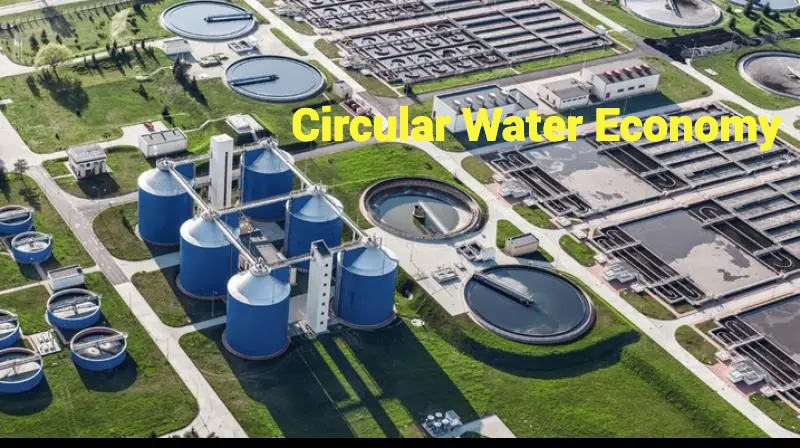(Image Courtesy: Deccan Herald)
A recent news report highlighting how Hyderabad planned to sell sludge, methane gas and plastic waste generated from their software tech parks brings back into focus the discussion of how most water users are concerned only about using this natural resource without ever caring about how to replenish this fast-depleting life-saver.
Time and again, we read that future wars would be fought for water and not oil (not sure if wars will be fought over data that was claimed to be the new oil), but water resource management was something that was meant for policy planners and implementers, never for the users – most of us would have seen open taps wasting water in our houses, offices, public toilets etc.
Water is a perishable resource now
If modern cities are to flourish and grow, handling the water economy becomes the first priority, especially in cities that boast of large tech parks housing big data centers that guzzle both power and water for survival. Which is why the Hyderabad Metropolitan Water Supply and Sewerage Board’s initiative to find uses for treated water catches the eye.
More so, because India faces a wastewater management challenge that looks like burgeoning into a major crisis in the none-too-far future. Rapid urbanization has outpaced wastewater treatment capacity across several large Indian cities, leaving the country with a virtually non-existent circular water economy.
India’s wastewater treatment market is burgeoning
A Frost & Sullivan report in 2022 suggested that India’s water and wastewater treatment market would touch $2.08 billion by 2025 from just $1.31 billion in 2020, at a CAGR of 9.7%. It even suggested that India ranked sixth in the market for environmental technologies in the world with sub-sector rankings of second for water and wastewater management.
Heightened industrial activity has worsened what was a challenge at the dawn of the millennium as more people are now consuming polluted water that contain heavy metals and chemicals. In fact, India’s growing demand for recycling and zero discharge were opportunities for US companies to offer effective solutions.
A report published by European Sting with inputs from the World Economic Forum notes that water security is relevant beyond countries with arid landscapes. The BSI Water Security Indicator that evaluated 40 locations noted that the US, China and India faced the highest possible water security challenges.
A need to shift the perception around water as a depleting resource
The article notes that the key factor is about seeing water as an infinite resource but recognizing that it is a depleting one which necessitates making the circular water economy an essential to sustainable development goals in both the developed and the developing countries. Therefore, ensuring that water-stressed areas contain reuse measures while also ensuring that rainwater harvesting, adding to the waterless toilets are critical.
At the core, circular water economy represents a clear shift on how a country, and more specifically users perceive and manage water resources. The conventional model treats water as a commodity to be used and discarded while the circular approach perceives it as a valuable and continuously circulating natural asset.
Which is where a closed-loop system of conserving, treating and reusing water can be used across all major cities such as Hyderabad has done now or is attempting to. Instead of centralized treatment plants due to the volume of sewage, the more decentralized systems offer a more agile and efficient solution.
In other words, the water economy too needs to be decentralized as was the case in the days of yore where communities were accountable for their resources, both in terms of consumption as well as treating wastewater and recycling it. In Israel, such systems help farmers to effectively transform waste into a valuable resource.
Another aspect of such decentralization is that it assists easier buy-ins as wastewater plants are perceived locally as resource centers and not waste generators or aggregators. Repurposing sludge and byproducts results in production of commodities like biogas that makes it easier for cities to get closer to achieving sustainability goals.
Promoting a circular water economy is yet another example of how decentralization could result in better outcomes due to the greater responsibility that local communities are bound to take when faced with water shortages.

